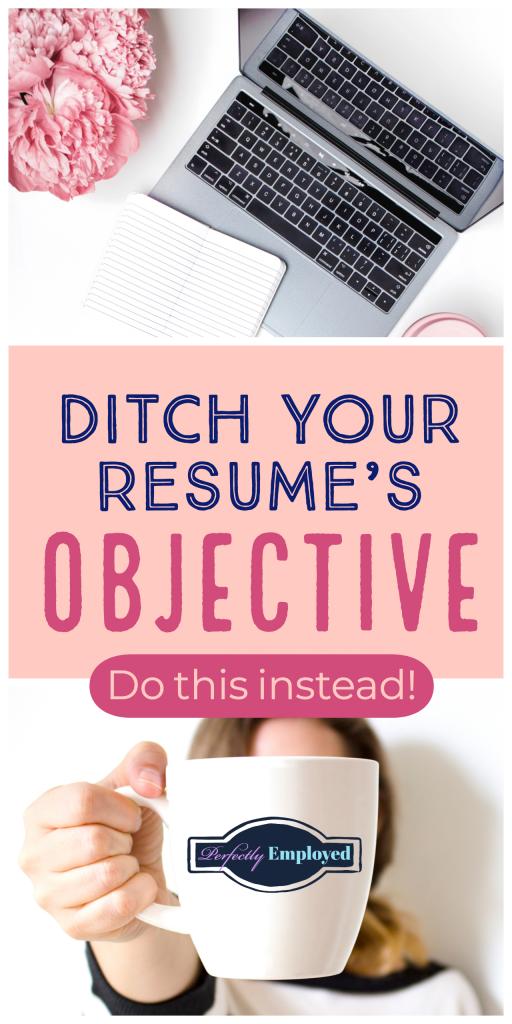
One of the biggest mistakes we see on resumes is candidates continuing to use the outdated resume “Objective” line at the top. Here’s a tip: Delete it. Right now.
Resume Objectives Do Not Help You Get a Job
No matter what your industry, your resume’s actual objective is the same—to get a job. Anything you write on the “objective” line is just is some version of “I want a job.” One of the worst objectives we see goes something like, “to work in an environment where my skills may be used for mutual benefit.” Well, duh. If your employer does not see your skills as beneficial to them, they aren’t going to hire you in the first place.
The next worst objectives we see are the ones where the applicant states the job to which they are applying as part of the objective. These look something like, “to be hired as a manager at Vandalay Industries.” Even worse, we see objectives targeted to a different job or company to which the job seeker is applying! Recently, we saw a recently graduated high school student who was applying for an entry-level retail job with a resume objective that read, “to work for Google as a research analyst.” Nothing is more offensive to an employer than to point out that you don’t see their job or company as a place you could stay forever. Sure, Best Buy knows that you probably won’t work there after graduate with your Masters in Engineering, but it’s still rude to point it out—especially before you’ve even scored an interview!
Use Your Resume Real Estate Wisely
The top lines of your resume are important real estate. Employers aren’t reading your resume word-for-word. Instead, they’re scanning for keywords that align with the job for which they’re hiring. They’re scanning quickly to see if you are different than all of the other people in their tower applicants. So, your goal is to make it easy for them to see that you are different. You are special. You are exactly the candidate they’re seeking.
Instead of wasting the top lines of your resume on a boring, obvious objective, use that precious space to explain precisely who you are and why you’re the best candidate for the job. You can do this in a few different ways, but if you’re new to crafting a resume specific to the job for which you are applying, start with a professional profile.
What to Say in a Professional Profile
Your professional profile can be either 1-2 concise sentences, or a bulleted list of no more than four items. You should tell your accomplishments and what makes you different than all of the other applicants. Here are a few industry-specific examples:
Teacher’s Professional Profile
Certified elementary school teacher with 15 years’ experience helping special education students reach their goals.
Writer’s Professional Profile
Award-winning freelance writer with over 150 articles published in major travel magazines such as Travel and Leisure and Conde Nast Traveler.
Computer Consultant’s Professional Profile
- Computer consultant with more than 20 years’ experience designing websites and repairing PCs, Macs, and servers.
- Advanced coding experience in C++, Python, and HTML.
- Portfolio of more than 200 website designs.
- A+ Certified computer repair technician.
Customize Your Professional Profile to the Job You Want
Professional Profiles are not a one-size-fits-all description of who are you. You should customize your profile for each job for which you are applying. Try to echo the words the you see used on the company’s website and throughout the job advertisement. Leave no doubt that you are exactly the candidate they want to hire!
Save to Pinterest


